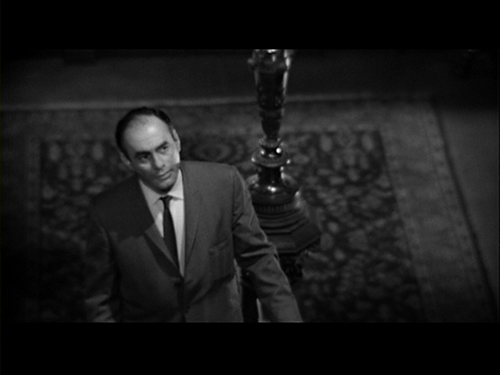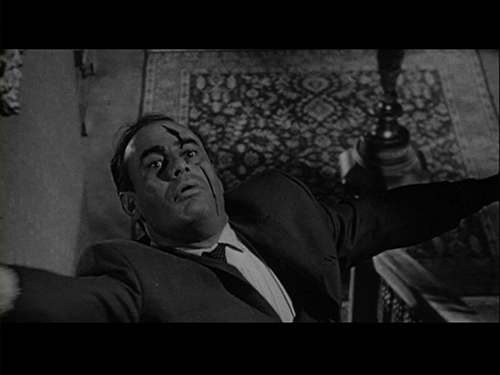Through the Looking Glass
- Swapping Loyalties
- Mirrors
Committing Crime and Exacting Punishment
- Rear Window
- Vertigo
- Psycho
Bombarding the Bombshell
Conclusion
References
Musical Distancing
The absence of leitmotif, the anchor between the viewers expectations/reactions and diegetic reality, undermines the relationship between audience and character. For example, were there a somewhat heroic theme connected to Sam’s appearances, even an allegro piece deriving melodies from the prelude, our perceptions of his screen time would be tainted with stable and authoritative expectation. Such expectations would take away from the reality of his character: that he is a more masculine representation of Norman, another reflection of insanity, the man who the repressed killer could have been were he able to consummate his sexual needs (Palmer 13). Without leitmotif as an aid the strings between audience and actor break, making it difficult to personally connect with the characters on screen, emphasizing and highlighting the only necessary relationships, those between one character and another.
I am not claiming however that the film is entirely devoid of important musical motifs. There are several recurring themes throughout the film such as the ascending/descending fifths as Lila approaches the Bates mansion for the first time. If not countercharged (high and low alternating), the descending scales would create a lessened sense of impending trouble, and could actually serve as a stabilizing element. A solitary descending scale could let the viewer know that trouble is in the cards (so to speak). The scoring as is, with alternating high and low tones, serves to create a sense of dread, but masterfully eliminates any sense of certainty the viewer may have developed. Yes, Lila is in danger, Arbogast is as well, but their fates once entering the mansion are still (musically) undecided. The goal here is uncertainty, psychosis, distortion, disconnection, and the irrational, separating us from “all power of rational control” (Wood 145) which would allow us to understand, and through our understanding affect, a film’s diegetic reality.

Herrmann's scoring adds the standard uncertain element, but when matched with the hazy look of the background here, the music takes on an almost dreamy effect.

Arbogast's fall down the stairs was made possible by way of a special rig where Martin Balsam sat in a chair that was placed in front of a screen. The image of the on-rushing floor and carpet were projected onto a screen behind him, all that was required of him was to wave his arms as though he were falling (Truffaut 276).